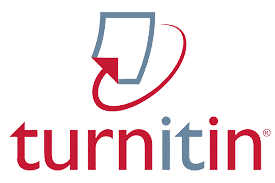Focus and Scope
Tazkiya: Jurnal Pendidikan Islam
Focuses on providing opportunities for researchers in the field of education, especially the results of research and research that are relevant to Islamic Education to be published.
Fokus memberikan kesempatan kepada peneliti di bidang pendidikan khususnya hasil penelitian dan penelitian yang relevan dengan Pendidikan Islam untuk dipublikasikan.
As for the scope of Islamic Education that is meant is:
- Islamic Education (Pendidikan Agama Islam)
- Islamic Education Management (Manajemen Pendidikan Islam)
- History of Islamic Education (Sejarah Pendidikan Islam)
- Islamic Education Curriculum (Kurikulum Pendidikan Islam)
- Islamic Education Institutions (Lembaga Pendidikan Islam)
- Islamic Educational Psychology (Psikologi Pendidikan Islam)
- Character Education in Islamic (Pendidikan Karakter dalam Islam)
- Learning Process (Proses pembelajaran)
- Etc.
Section Policies
Articles
Publication Frequency
This journal is published in 2 editions every year at January-June and July-December.
Jurnal ini terbit dalam 2 edisi setiap tahun pada bulan Januari-Juni dan Juli-Desember.
Open Access Policy
This journal provides immediate open access to its content on the principle that making research freely available to the public supports a greater global exchange of knowledge.
Jurnal ini menyediakan akses terbuka langsung ke isinya dengan prinsip bahwa membuat penelitian tersedia secara bebas untuk umum mendukung pertukaran pengetahuan global yang lebih besar.
Publication Ethics
In English
The statement of publications ethic is a code of ethics for all participants involved in the publication process of this journal; editor in chief, editors, reviewers, and writers. The Code of Ethics for Scientific Publications essentially consists of three publication ethic, (i) Neutrality, which is free from conflict in managing of publications; (ii) Justice, authorship rights is given to the authors; and (iii) Honesty, i.e. free from duplication, fabrication, falsification, and plagiarism in publications.
Duty and Responsibility of Journal Manager
- Determine the name of the journal, scope of Science, scale, and accreditation if necessary.
- Managing of editorial membership.
- Define the relationship between the publisher, editor, reviewer, and others in a contract.
- Respect to confidential thing among researchers who contribute, authors/writers, editors, and reviewers.
- Applying of norms and provisions regarding to intellectual property rights, especially copyright.
- Review journal policies and submit them to the author/writer, editorial, reviewers, and readers.
- Create guidelines for editors and reviewers.
- Publish journals regularly.
- Guarantee the availability of financial for the sustainability of publishing.
- Build a cooperation and marketing.
- Preparing of licensing and legality.
Duty and Responsibility of Editor
- As a bridge between the needs of readers and authors/writers.
- Attempt to increase the quality of publication.
- Implementing of the processes to guarantee the quality of writing.
- Promote the freedom in expressing of the opinion objectively.
- Seeing the author's academic track record.
- Submit corrections, clarifications, cancellation, and apologies if it is needed.
- Responsible for the style and format of the paper, while the contents and all statements in the paper are the author/writer’s responsibility.
- Sharing and asking of the opinions to the authors, readers, reviewers, and editorial to improve the quality of publications.
- Encourage the evaluation of the journal if there is an innovation.
- Initiatives to guide researchers about the publication ethic.
- Assess the effect of published policies towards the attitude of author/writers, and reviewers to improve the responsibility and minimize errors.
- Open mind to new opinions or other perception.
- Not maintaining one's opinion, the author or other that can lead to subjective decision.
- Support the author/writer improve their work.
The Duty and Responsibility of Reviewer
- Run the duty from the editor to review the paper and submit to the editor to determine the eligibility of a paper.
- The reviewers are not permitted to examine papers which involve their selves either directly or indirectly.
- Save author’s privacy, keep the results of correction, suggestion, and recommendations by giving criticism, suggestions, and recommendations.
- Support the author/writer improve their paper.
- Re-examine the manuscript that has been repaired based on the standardization.
- The manuscript must be reviewed based on the style of the submission guidelines (data collection methods, author's legality, conclusions, etc.).
Duty and Responsibility of Writer/Author
- Ensuring that those include to the list of authors/writers meet the criteria as an author/writer.
- Responsible for the duty collectively and the content of the article including to the method, analysis, calculation in detail.
- Define the origin of the resources (including funding) directly and indirectly.
- Explain limitations of the research.
- Respond to comments made by reviewers professionally and timely manner.
- Inform the editor if retract the writing.
- Make a statement of originality, it has never been published anywhere in any language, and it is not being submitted to other publishing.
Bahasa Indonesia
Pernyataan etika publikasi merupakan kode etik bagi semua pihak yang terlibat dalam proses publikasi jurnal; ketua editor, editor, reviewer, dan penulis. Kode Etik Publikasi Ilmiah pada dasarnya terdiri dari tiga etika publikasi, (i) Netralitas, yaitu bebas dari konflik dalam pengelolaan publikasi; (ii) Keadilan, yaitu hak kepengarangan diberikan kepada penulis; dan (iii) Kejujuran, yaitu bebas dari duplikasi, fabrikasi, pemalsuan, dan plagiarisme dalam publikasi.
Tugas dan Tanggung Jawab Kepala Editor Jurnal
- Tentukan nama jurnal, ruang lingkup ilmu, skala, dan akreditasi jika diperlukan.
- Mengelola keanggotaan redaksi.
- Menentukan hubungan antara penerbit, editor, reviewer, dan lainnya dalam sebuah kontrak.
- Menghormati hal yang bersifat rahasia antara peneliti yang berkontribusi, penulis/penulis, editor, dan reviewer.
- Penerapan norma dan ketentuan mengenai hak atas kekayaan intelektual, khususnya hak cipta.
- Tinjau kebijakan jurnal dan serahkan kepada penulis/penulis, editorial, reviewer, dan pembaca.
- Buat pedoman untuk editor dan pengulas.
- Publikasikan jurnal secara berkala.
- Menjamin ketersediaan finansial untuk keberlangsungan penerbitan.
- Membangun kerjasama dan pemasaran.
- Persiapan perizinan dan legalitas.
Tugas dan Tanggung Jawab Editor
- Sebagai jembatan antara kebutuhan pembaca dan penulis/penulis.
- Upaya meningkatkan kualitas publikasi.
- Menerapkan proses untuk menjamin kualitas tulisan
- Mempromosikan kebebasan dalam menyatakan pendapat secara objektif.
- Melihat rekam jejak akademik penulis.
- Menyerahkan koreksi, klarifikasi, pembatalan, dan permintaan maaf jika diperlukan.
- Bertanggung jawab atas gaya dan format makalah, sedangkan isi dan semua pernyataan dalam makalah menjadi tanggung jawab penulis/penulis.
- Berbagi dan meminta pendapat kepada penulis, pembaca, reviewer, dan redaksi untuk meningkatkan kualitas publikasi.
- Mendorong evaluasi jurnal jika ada inovasi.
- Inisiatif untuk memandu peneliti tentang etika publikasi.
- Menilai pengaruh kebijakan yang diterbitkan terhadap sikap penulis/penulis, dan pengulas untuk meningkatkan tanggung jawab dan meminimalkan kesalahan.
- Buka pikiran untuk pendapat baru atau persepsi lain.
- Tidak mempertahankan pendapat, penulis atau orang lain yang dapat menyebabkan keputusan subjektif.
- Dukung penulis/penulis untuk meningkatkan karyanya.
Tugas dan Tanggung Jawab Reviewer
- Jalankan tugas dari editor untuk meninjau makalah dan serahkan ke editor untuk menentukan kelayakan sebuah makalah.
- Reviewer tidak diperkenankan untuk meneliti makalah yang melibatkan dirinya baik secara langsung maupun tidak langsung.
- Selamatkan privasi penulis, simpan hasil koreksi, saran, dan rekomendasi dengan memberikan kritik, saran, dan rekomendasi.
- Mendukung penulis/penulis memperbaiki makalahnya.
- Periksa kembali naskah/manuskrip yang telah diperbaiki berdasarkan standarisasi
- Naskah harus ditinjau berdasarkan gaya pedoman pengajuan (metode pengumpulan data, legalitas penulis, kesimpulan, dll.).
Tugas dan Tanggung Jawab Penulis
- Memastikan bahwa mereka yang termasuk dalam daftar penulis/penulis memenuhi kriteria sebagai penulis/penulis.
- Bertanggung jawab atas tugas secara kolektif dan isi artikel termasuk metode, analisis, perhitungan secara rinci.
- Menentukan asal sumber daya (termasuk pendanaan) secara langsung dan tidak langsung.
- Menjelaskan keterbatasan penelitian.
- Menanggapi komentar yang dibuat oleh pengulas secara profesional dan tepat waktu.
- Memberi tahu editor jika menarik kembali tulisan tersebut.
- Membuat pernyataan orisinalitas, belum pernah dipublikasikan di mana pun dalam bahasa apapun, dan tidak sedang diajukan ke penerbitan lain.







